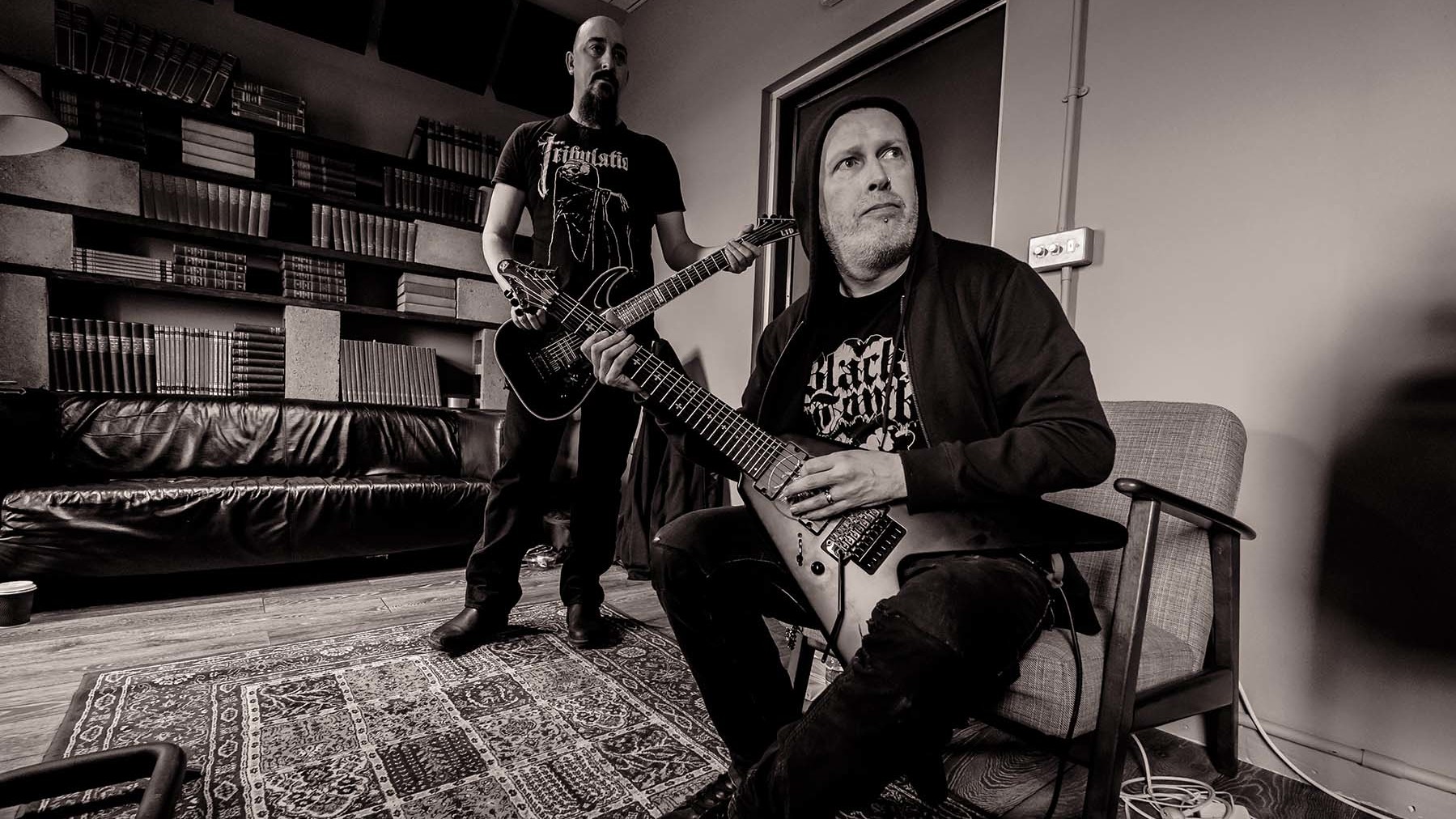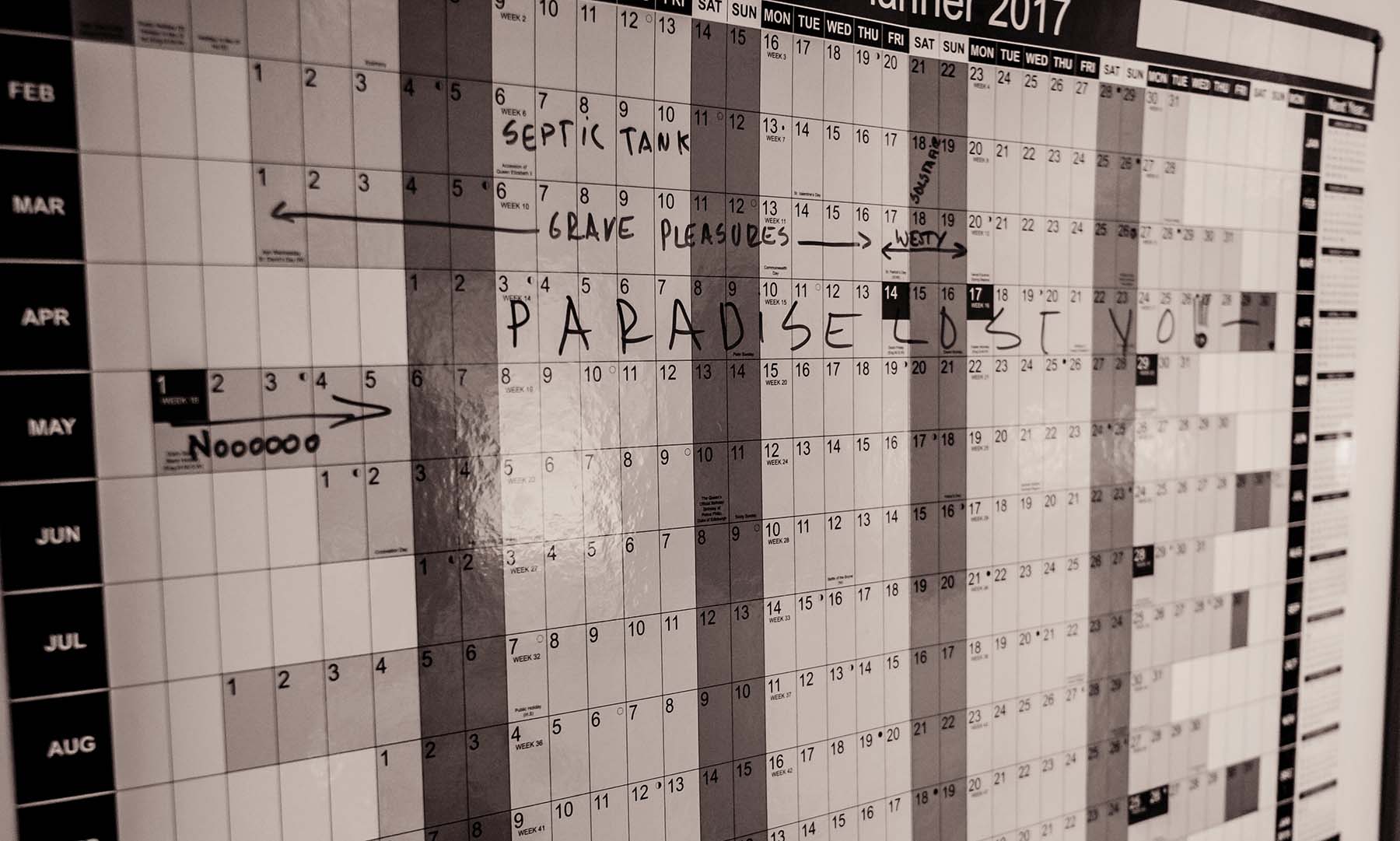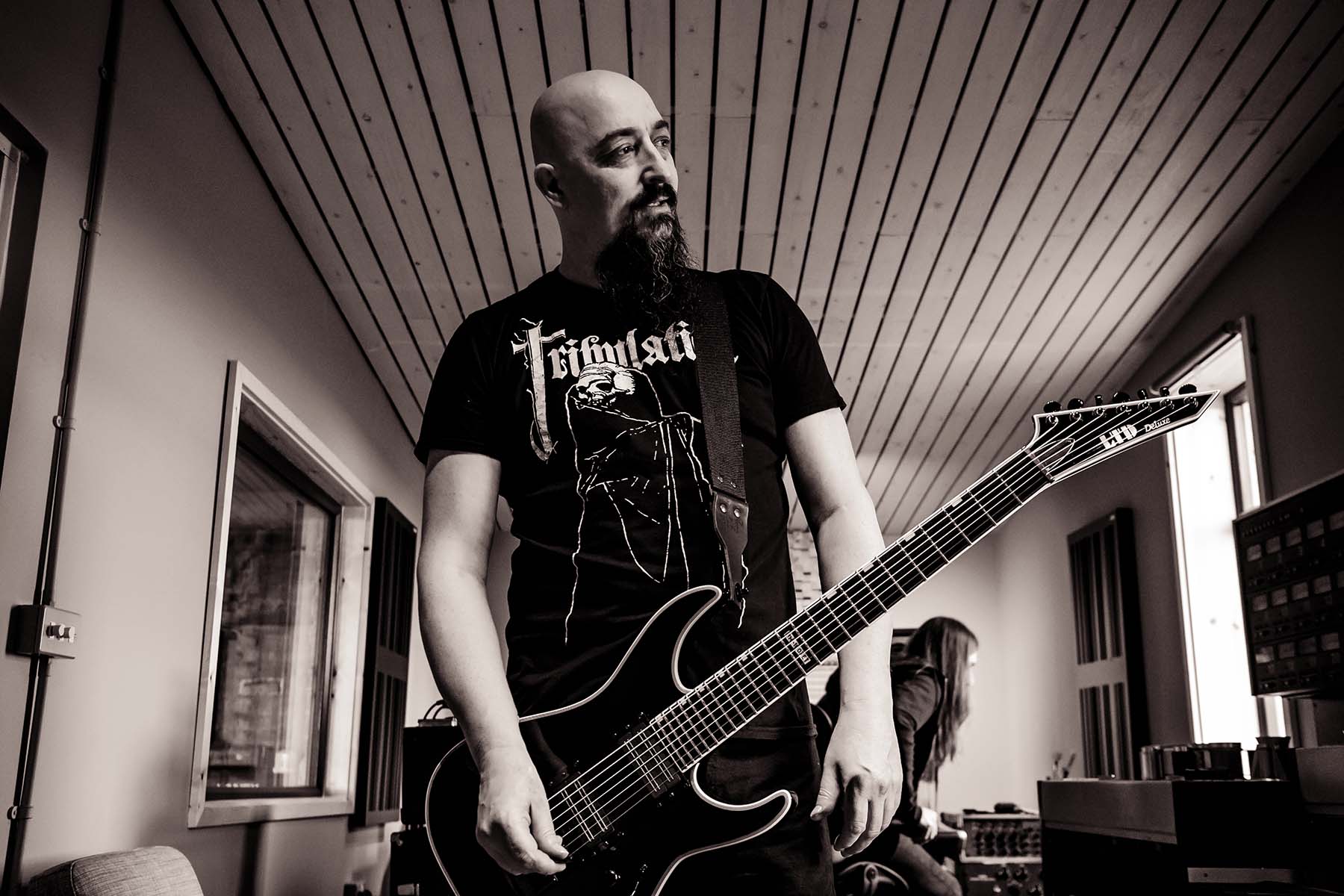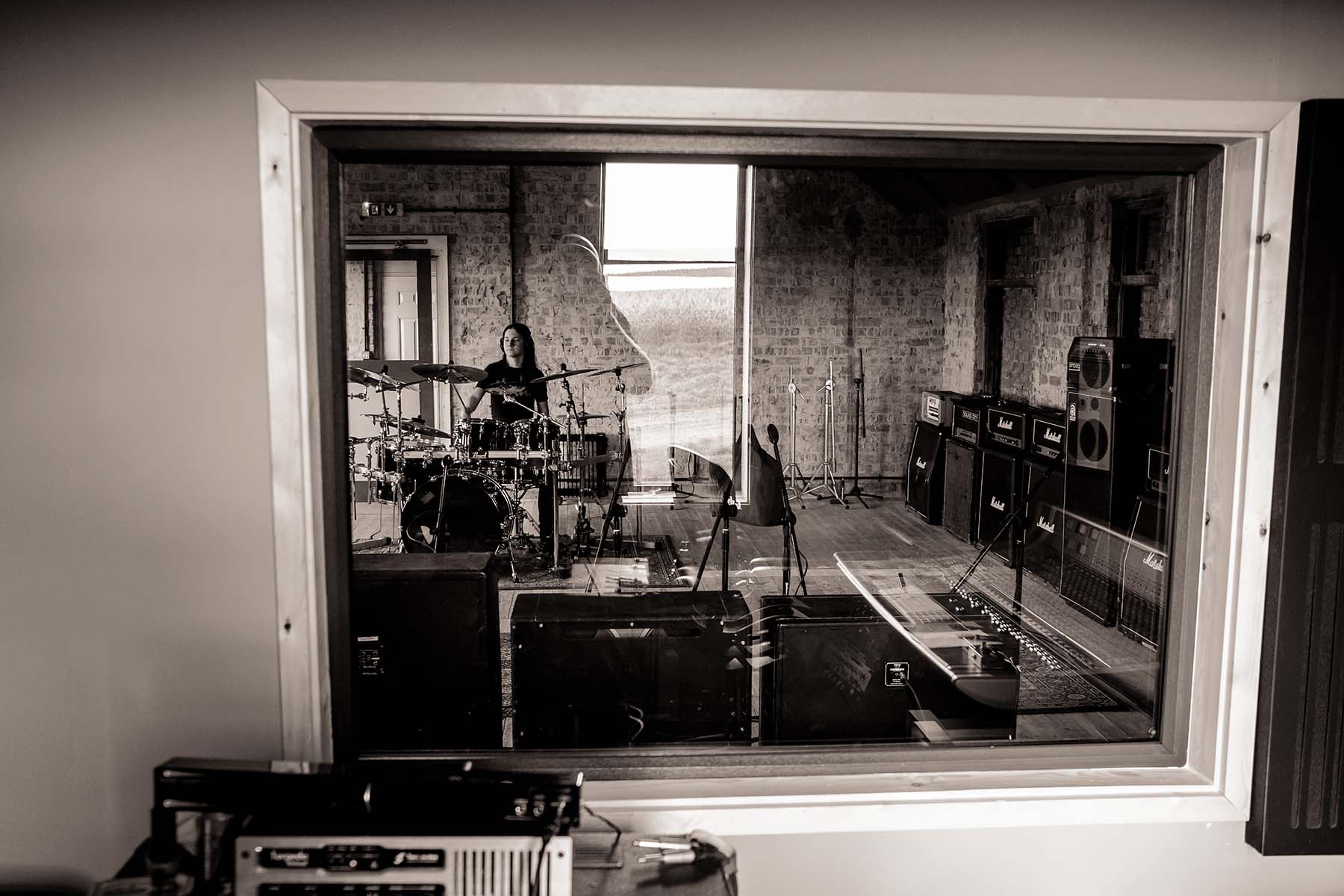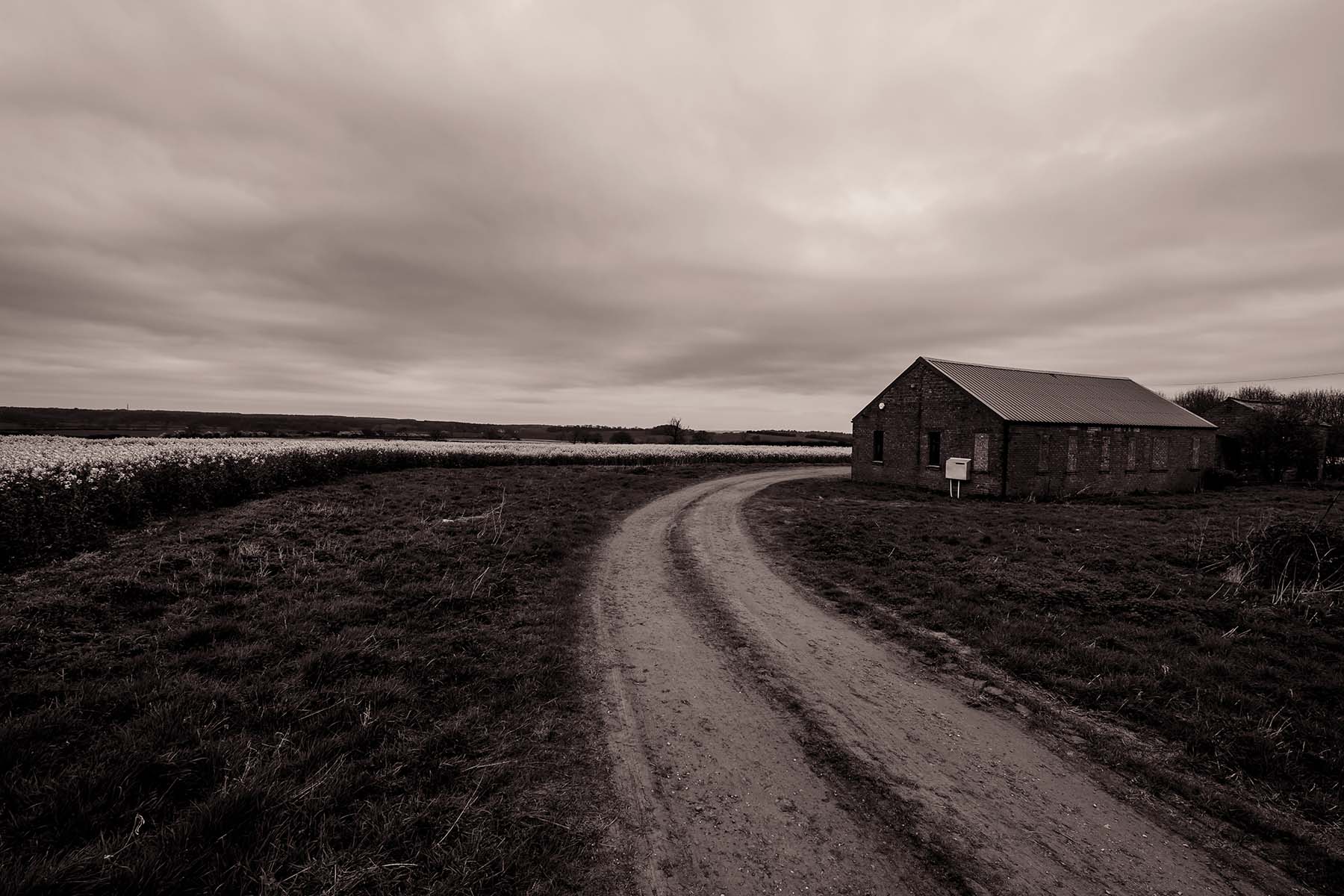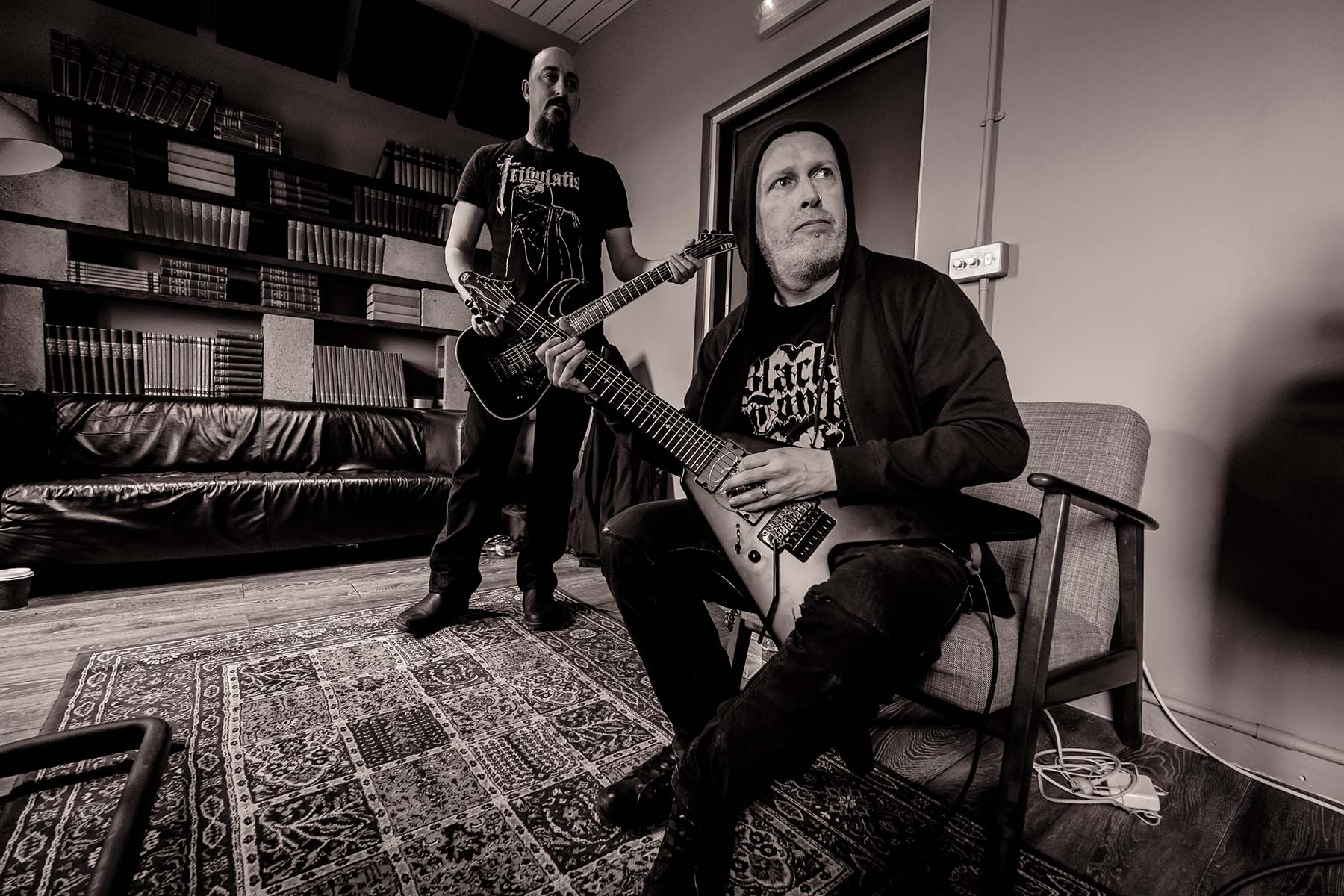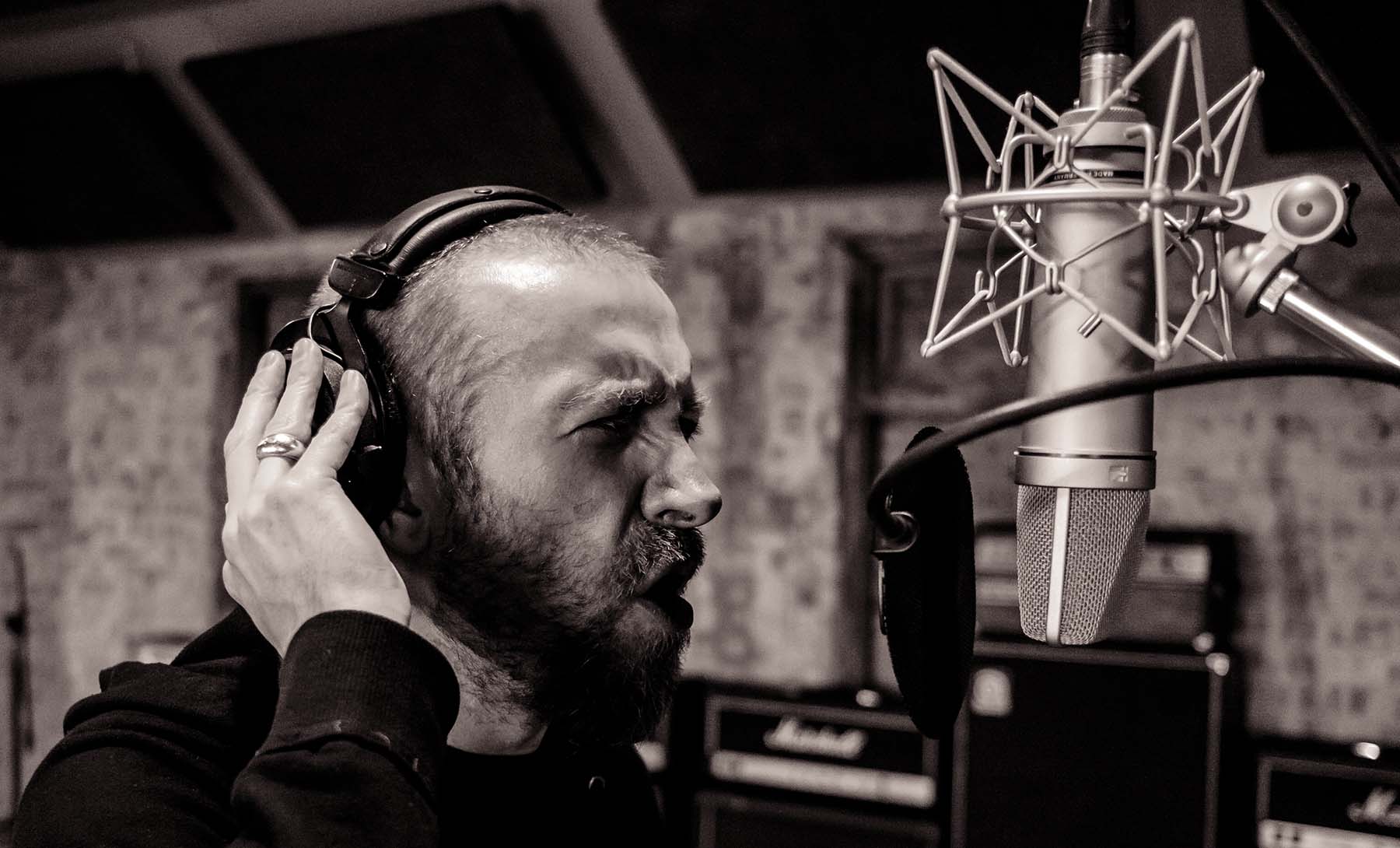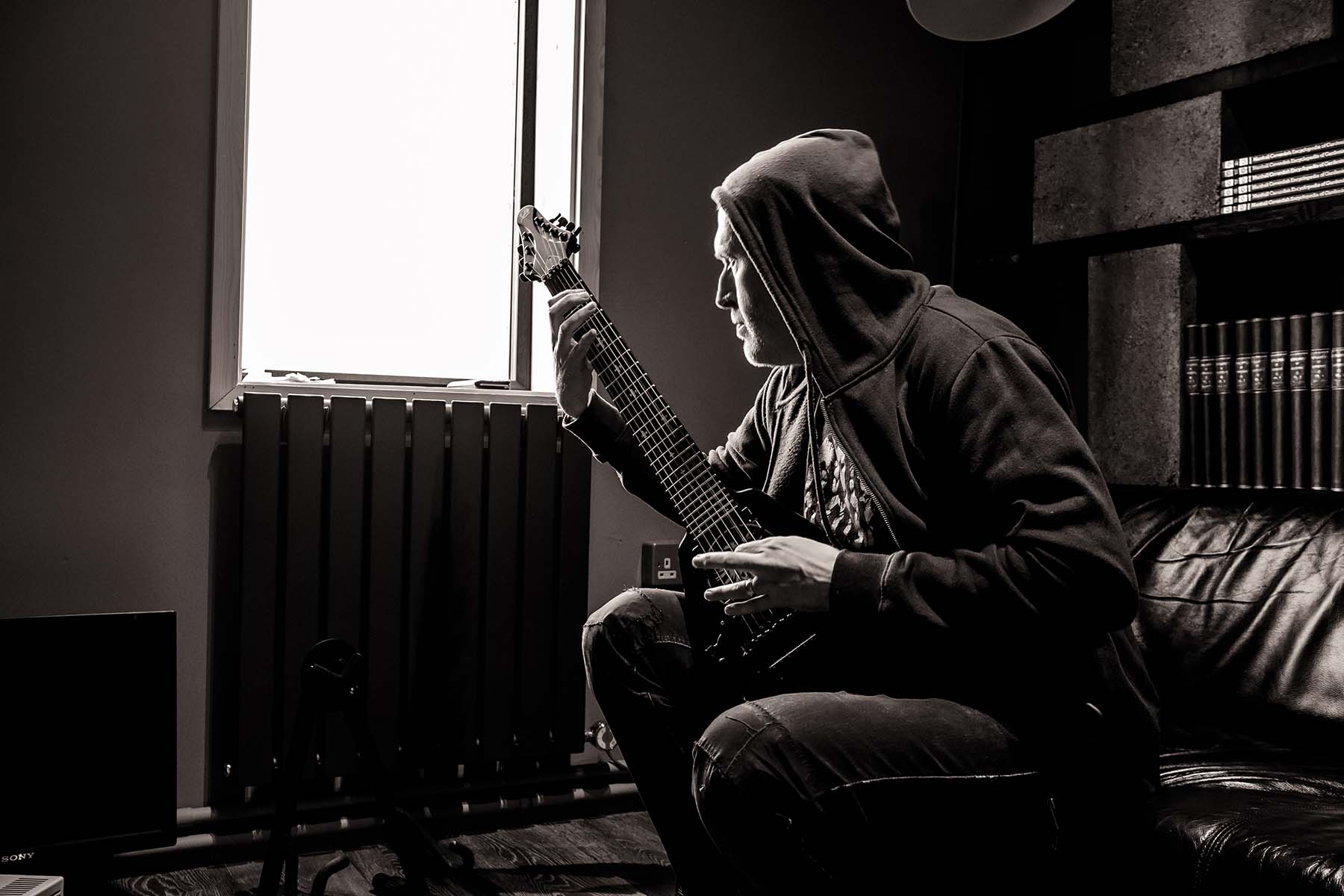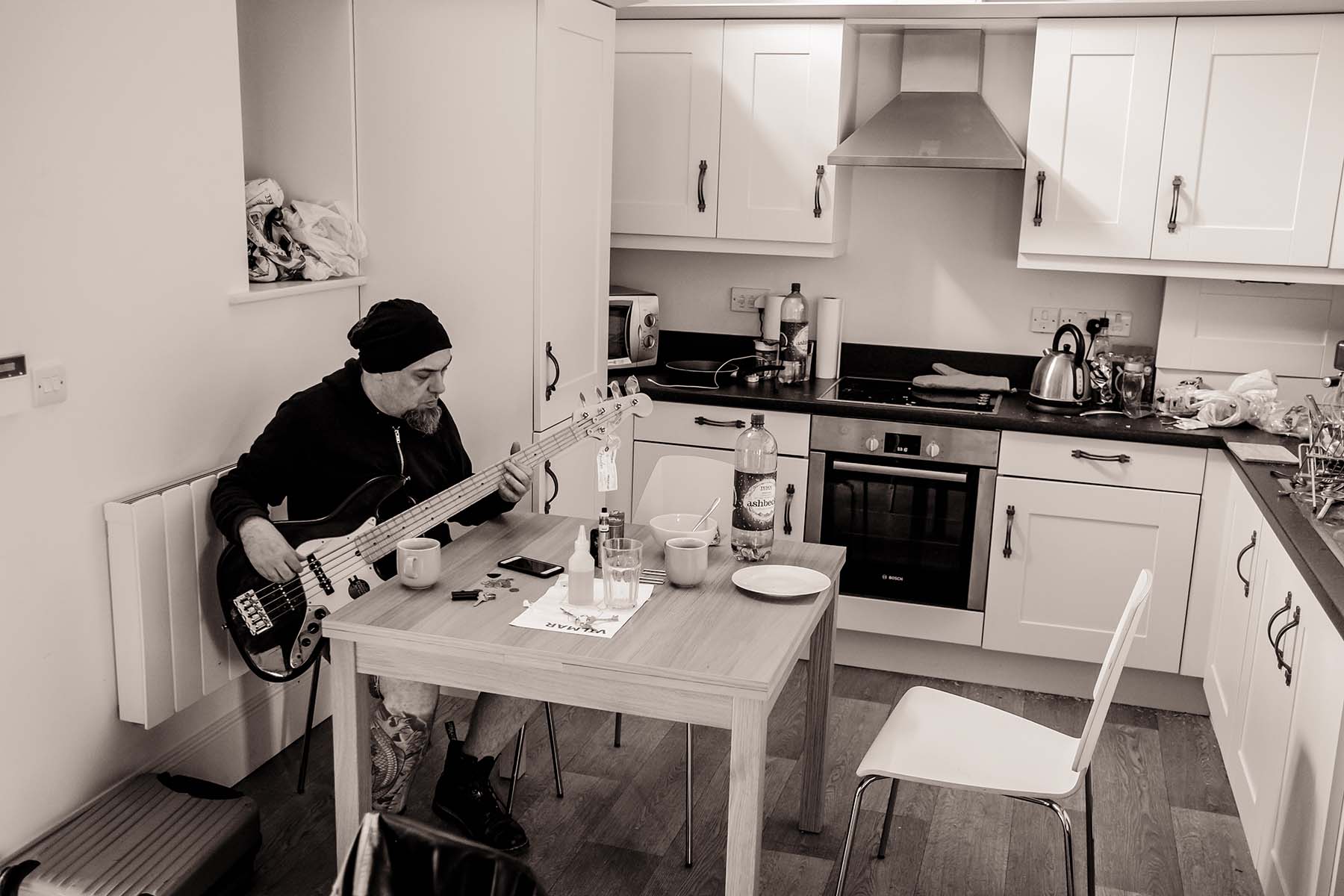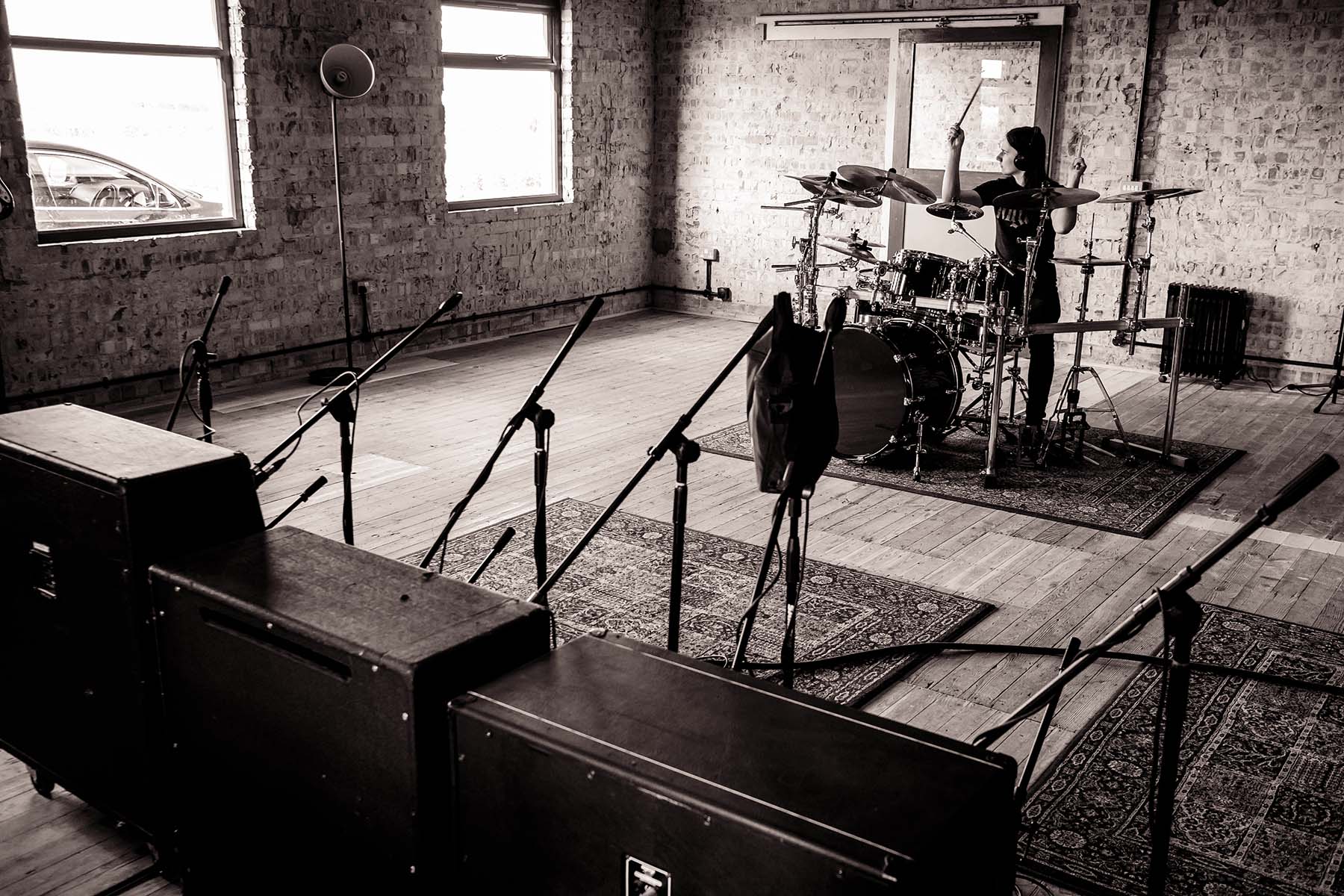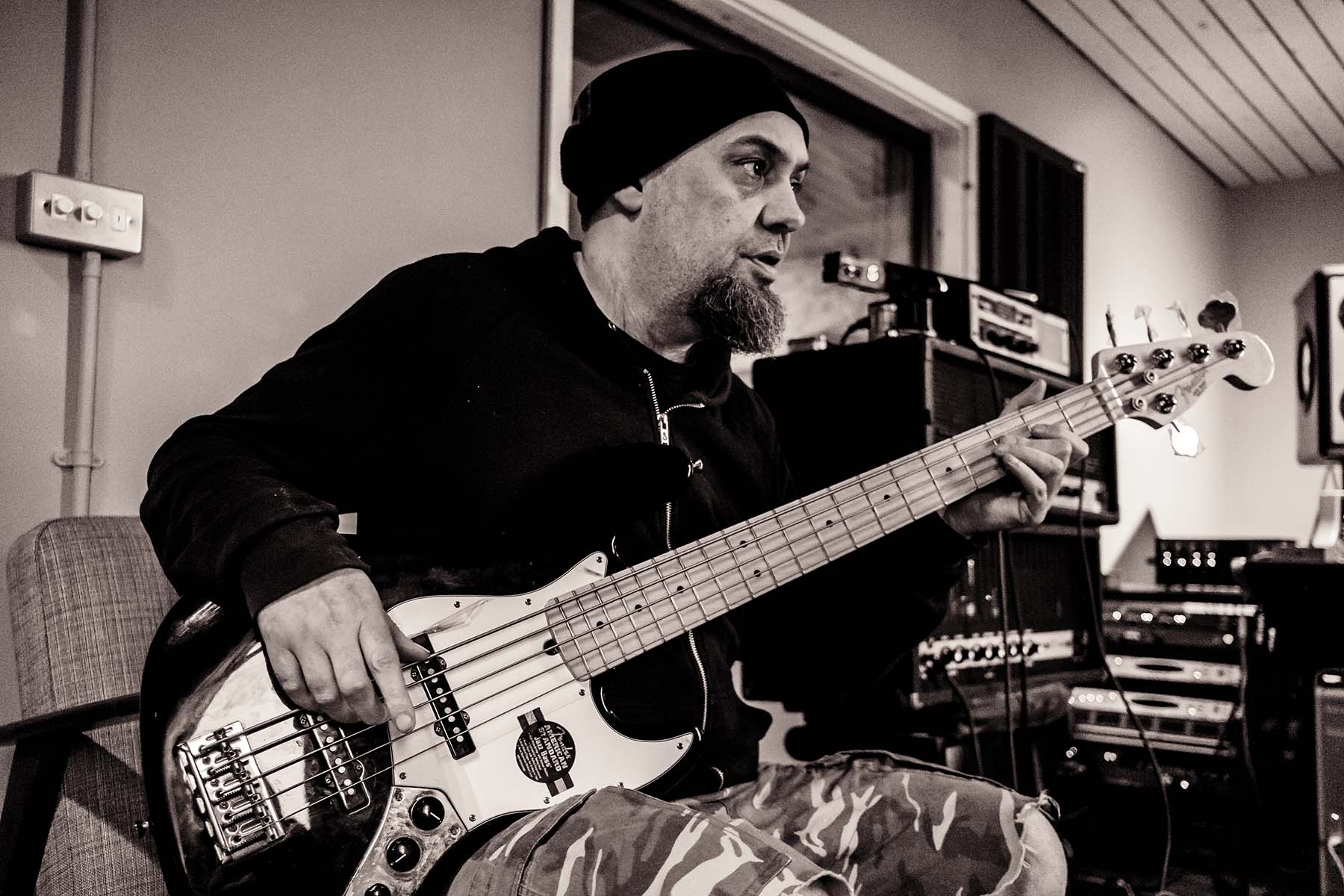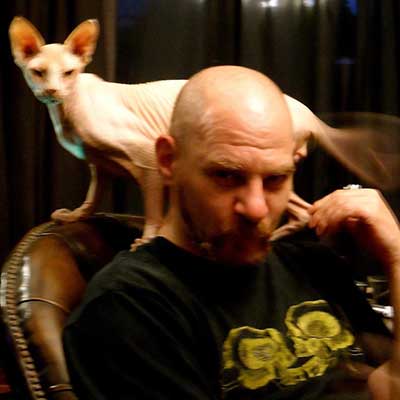Much like the still-thriving death/doom scene they helped instigate nearly three decades ago, Paradise Lost have managed to find innumerable shades of expression within what at first seemed a fairly narrow framework. From the raw, desiccated rumble of their Lost Paradise debut to the gnashing, Metallica-singed riffs of Icon, the industrial gothic grooves of the polarising One Second – now getting a 20th-anniversary-edition reissue – the more stately grandeur of 2007’s In Requiem and the return of The Growl on 2015’s The Plague Within, this remarkably stable line-up (only the drummers – of course – have ever changed) have marked out a journey that time has etched ever deeper levels of detail and weathered experience into.
Medusa, the Yorkshire band’s 15th album, is due to be released on September 1 via Nuclear Blast Records, and if it’s both a continuation and refinement of its predecessor. Once more steeped in old-school atmosphere and riffs, sounding like a cyclical return of some elemental force rather than any kind of deliberate throwback, its slower, yet more doom-laden pace wrings all manner of battle-scarred emotion from its baseline of all-seeing stoicism. Still aware that human nature never changes, but the paths laid out by the errors of our ways are forever forking, Medusa is imperious, aptly writhing under the Atlas weight it bears and shot through with a redeeming grandeur only those with the broadest of perspectives can attain.
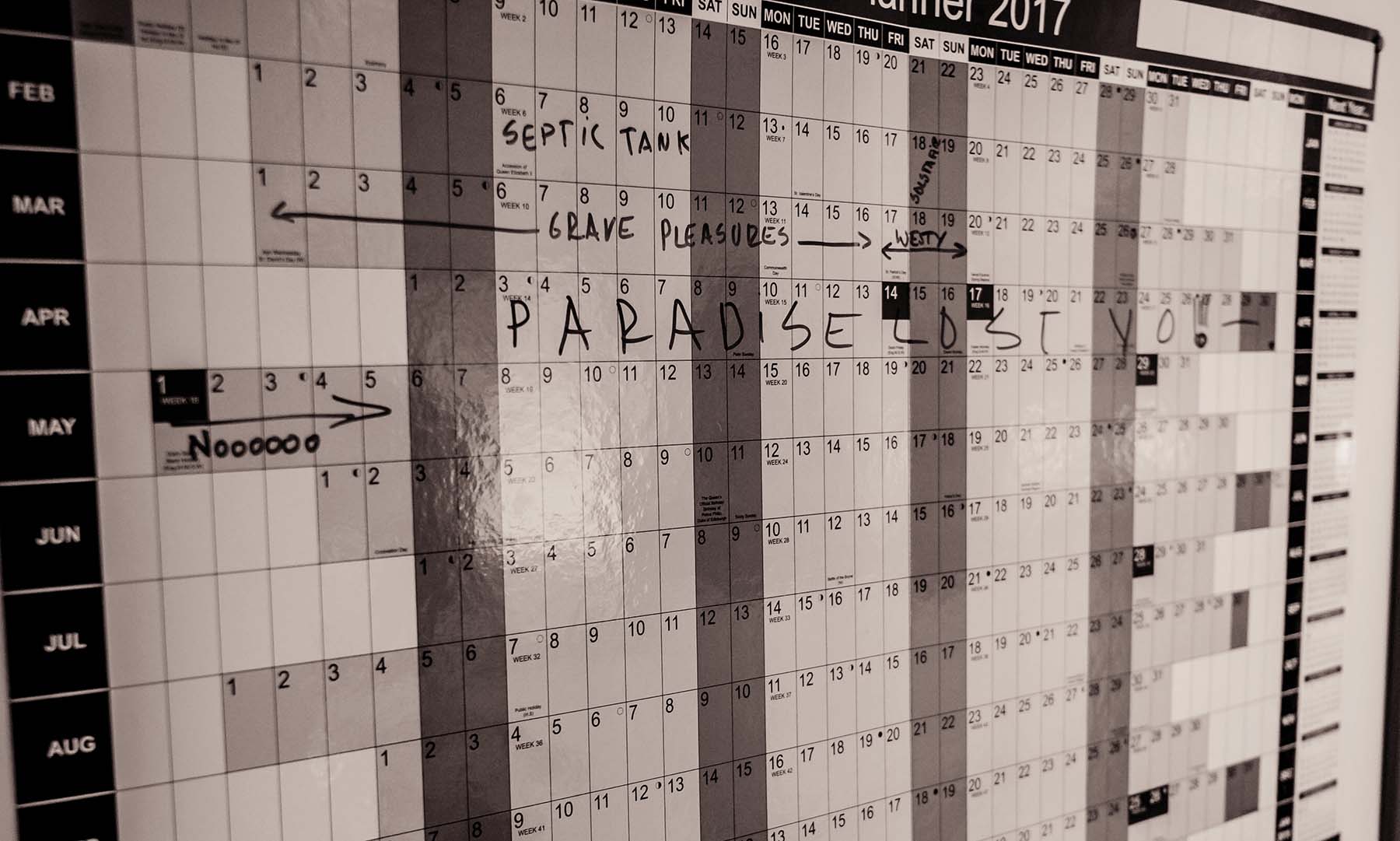
On an oppressively hot and humid summer afternoon, with fans whirring in the background like small gestures against an unimaginable and omnipresent foe, Paradise Lost frontman Nick Holmes and lead guitarist Gregor Mackintosh are sat chatting to Metal Hammer, their ‘deadpan’ reputation not taking into account their personable nature as they prepare to rake over the new album and more.
Medusa feels like the most doom-laden album you’ve released for a long time. Although there are parallels with The Plague Within, it seems to have mainly taken its cue from the track Beneath Broken Earth.
Gregor Mackintosh: “That’s exactly right. That was the last song we wrote for the last album, and we just really liked how it turned out. We loved playing it live too, so we thought it would be really good to do a whole album of that kind of thing.”
Did your experiences in Vallenfyre (Gregor) and Bloodbath (Nick), both of which are pretty old-school-sounding, have any bearing?
Gregor: “It’s just where are heads are at right now. It’s almost a snapshot, isn’t it? I didn’t know I was going to have to write Vallenfyre and Paradise Lost back to back at the time that it happened, but the way it did happen is kind of good, because it helped me focus on the core of what I thought this record should be. But you take it a song at a time when you write it, and the idea was to do a more doomy album, but we couldn’t do it just for the sake of it, because it could be as boring as hell. That’s why I’m happy about the first song in particular – it’s eight and an half minutes, and for me it feels like half that. To me it doesn’t get boring anyway.”
It shows you were heavily invested in it.
Nick Holmes: “It’s important, because it determines what’s going to happen for the next couple of years. You’re only as good as your last album, and for us it’s important to make sure the foundations for the next few years are there. If you do an album that’s not particularly well received, you’re going to find yourself having to do another album way quicker than perhaps you would have liked. So you have to give it as best you can every time, or there’s no point, really.”
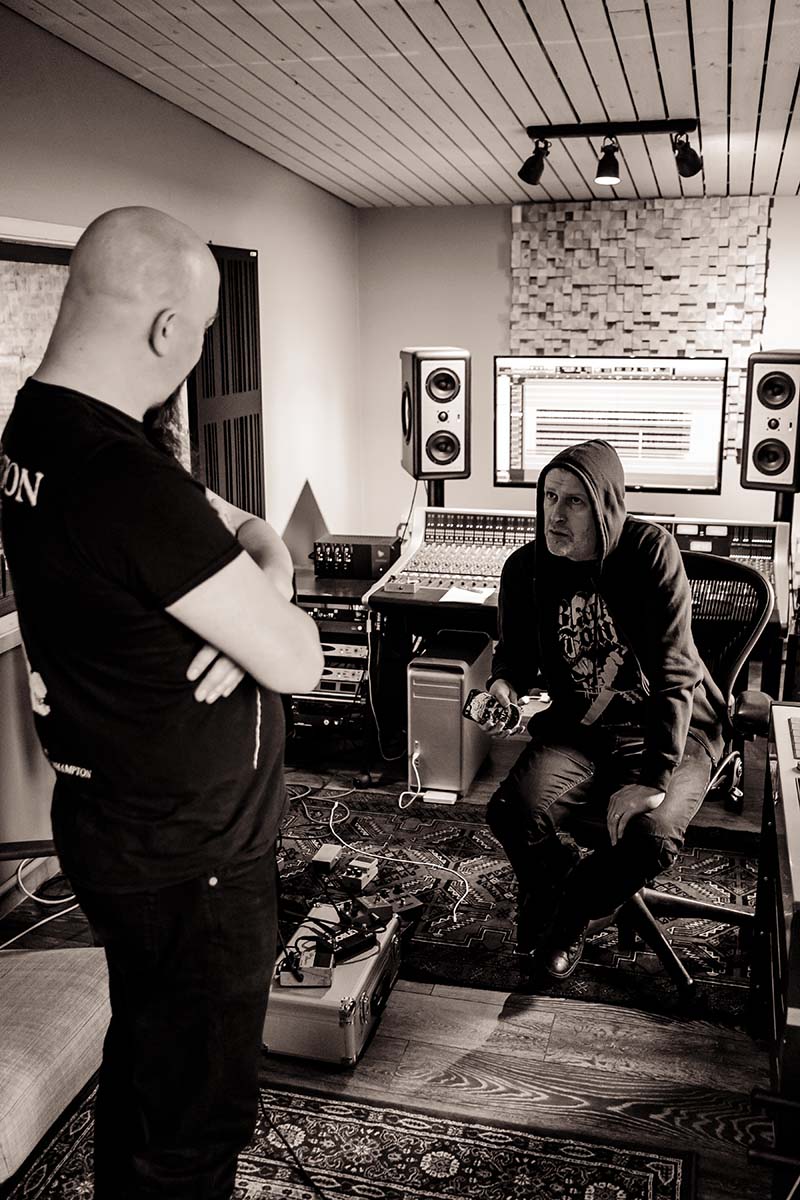
You worked with producer Jaime Gomez Arellano (Ghost, Cathedral, Sólstafir, Primordial) again. Was that a no-brainer after The Plague Within?
Gregor: “We don’t really need a producer in the sense of someone to shape you, because we’ve been doing it for a long time. We know what we want, but we don’t know how to get it, so you need someone to help you along the way. Gomez is really up for experimenting, and he is good with sounds. He’s not your run-of-the-mill metal producer, because a lot of them produce by looking at a screen, he still does it with his ears, which is the only way you should produce.”
You have a new drummer, Waltteri Väyrynen (also of Vallenfyre) too. Was he always the person to replace Adrian Erlandsson?
Gregor: “No, because nobody knew him. I got him in for an audition for Vallenfyre. He was living in the fields of northern Finland somewhere. One of the drum videos he sent him, he was drumming in a field. That was quirky enough to get the job. He did great in Vallenfyre. He couldn’t really speak English at first, but he’s got a really good sense of humour, he takes shit well. He’s a great drummer. There’s a different league of drummers these days, they’re on a different level. The old guard of metal drummers, while they’re fantastic at what they do, they find it very difficult to improvise. He was in his zone, and the second song on the album, Gods Of Ancient, we just let him loose on that one.”
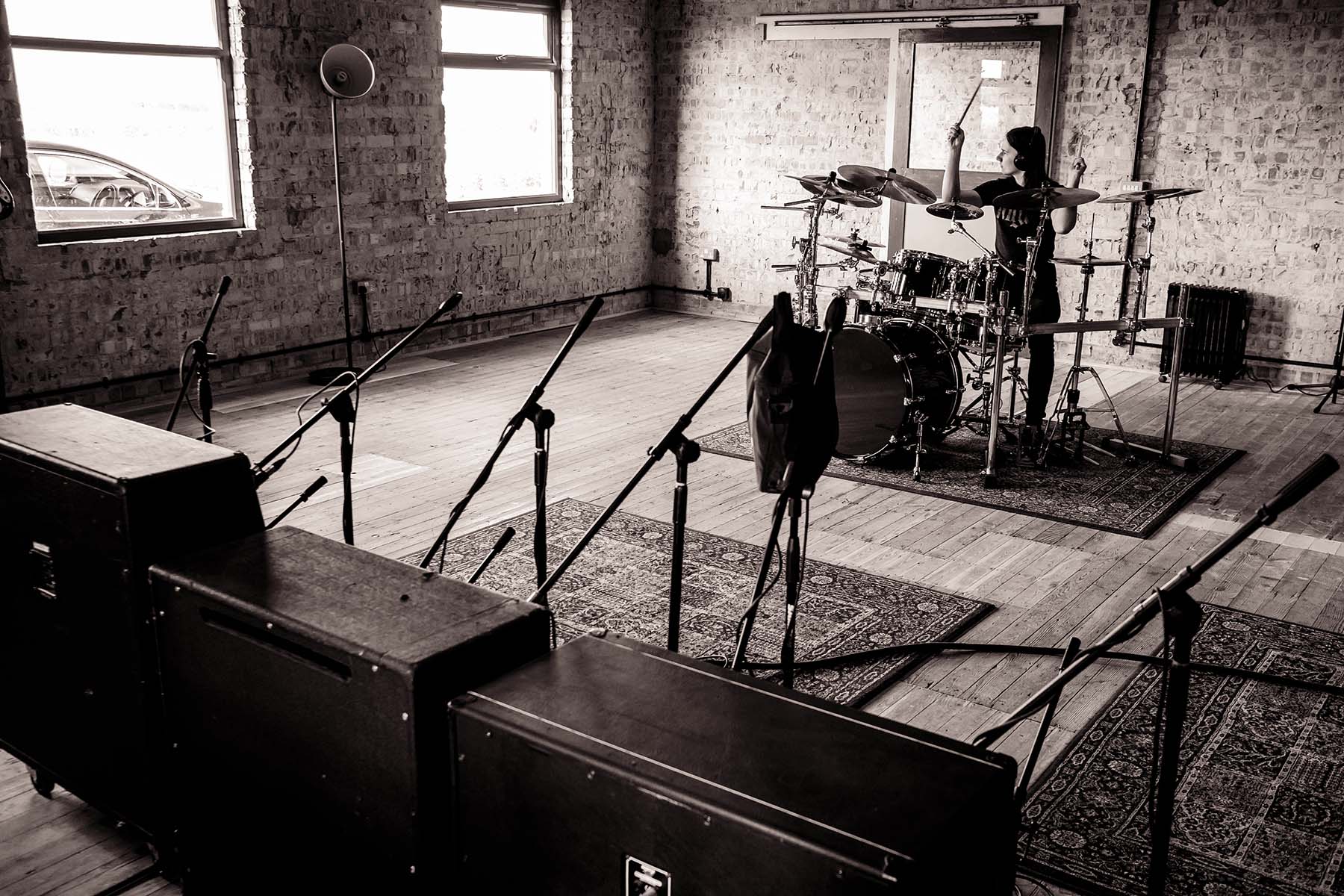
Did bringing the growls back open up new avenues?
Nick: “I guess so, because if you’re trying to avoid the growling, it’s already making songs not as heavy as they could be, because the songs always had heaviness to them. It’s not even aggression, it just adds something more to it. It gives it a more demonic edge I suppose. I’ve always thought of the growls as another instrument anyway. From a writing point of view, it’s important to make them hooky. You’ve got to remember where they fall on the notes, because barking like a dog, and I found a lot of bands got into that, and that’s why I got bored of death metal, but if you can shape them so they work with the riffs, the rhythmic thing is really important, and then if you get that, it works. If you’ve got a massive doom riff, you’ve got to growl on it.”
Gregor: “Believe me, we tried every avenue before the growls. We had 10 to 15 versions of each song as we were writing them, trying every single vocal style out until we thought, yeah, that sits well in that. It just so happened that 80% of it was gruff, but we never planned it that way.”
Nick: “With clean singing, it’s all about you singing along with the guitars, but with the growling for me, it’s just drums. You sing along to the drums, because you’ve got to work with the stabs, and even with Bloodbath it’s very much what the drums are doing. It’s the rhythmic thing. I used to do it in the old days with PL, but I never really thought about it, it was just something I did. But over the years, I was always thinking about where the drums were stabbing and where you’re punching in the notes and the vocal hits, as it were.”
Gregor: “Ironically, it’s like rapping, and I can’t stand rapping.”
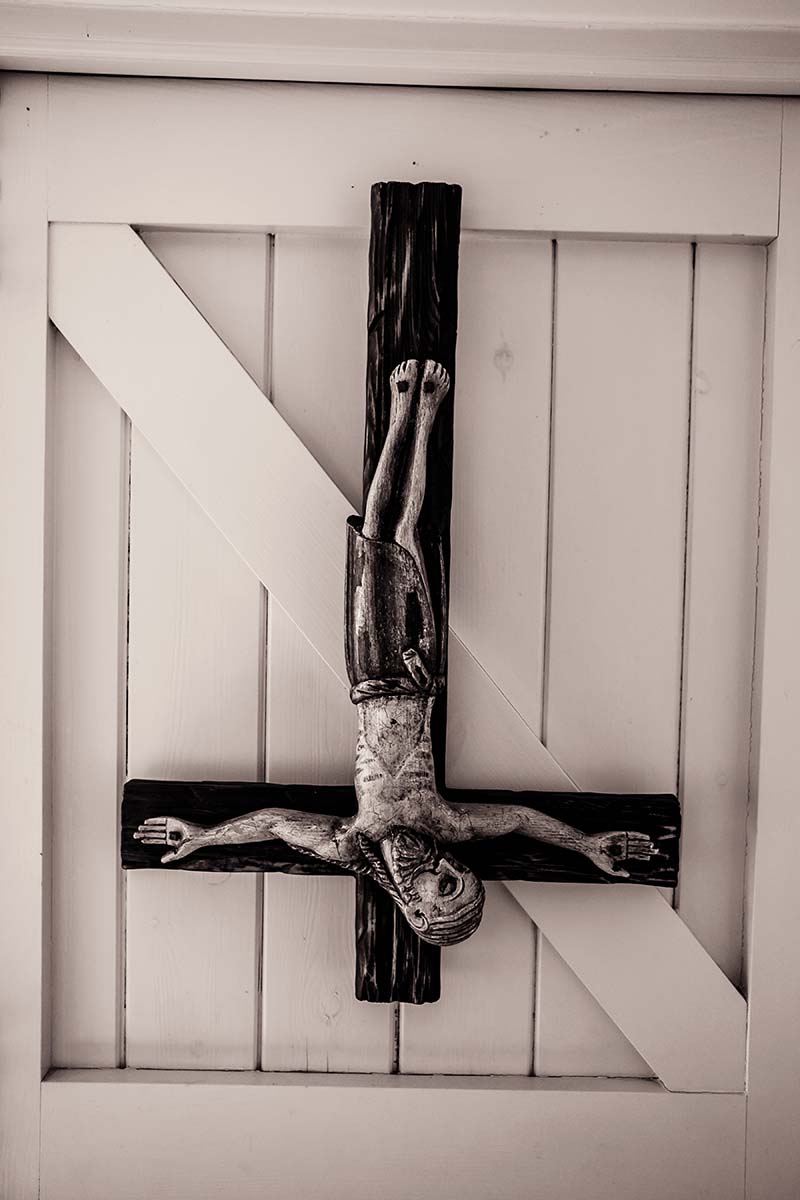
How thematically linked were the songs on this album? There seem to be a lot of lyrics relating to gods or fate.
Nick: “I’m obsessed with religious imagery and religious iconography. I love all that stuff, and I’ve done a lot of travelling over the last 10 years. I love seeing new places finding out what their religion was and seeing their churches. That’s coming from someone who is a total atheist, but I still find what makes humans believe in this stuff and how they represent that through the religious symbols and icons, fascinating. It’s always fascinating what people do in the name of these things that people believe in and the horrors that can be committed.”
The figure of Medusa has been open to lots of different interpretations. What aspect of the myth did you draw on for the album title?
Nick: “Greg came up with the title, because it was the name of a song he was working on, and he just grabs titles out of the air. He must have watched Clash Of The Titans or something. I really liked it, because it’s not a title I would come up with. So I looked up what it means and it meant way more than I thought, and it got deeper the more I dove into it. But the nihilistic interpretation from the Jack London novel [The Mutiny Of The Elsinore], I really liked that, because not looking in the eyes of Medusa is not looking at our tragic state of the world. That’s like a line I would write and so therefore it was justifiable to use the title. So that’s how we got to it.”
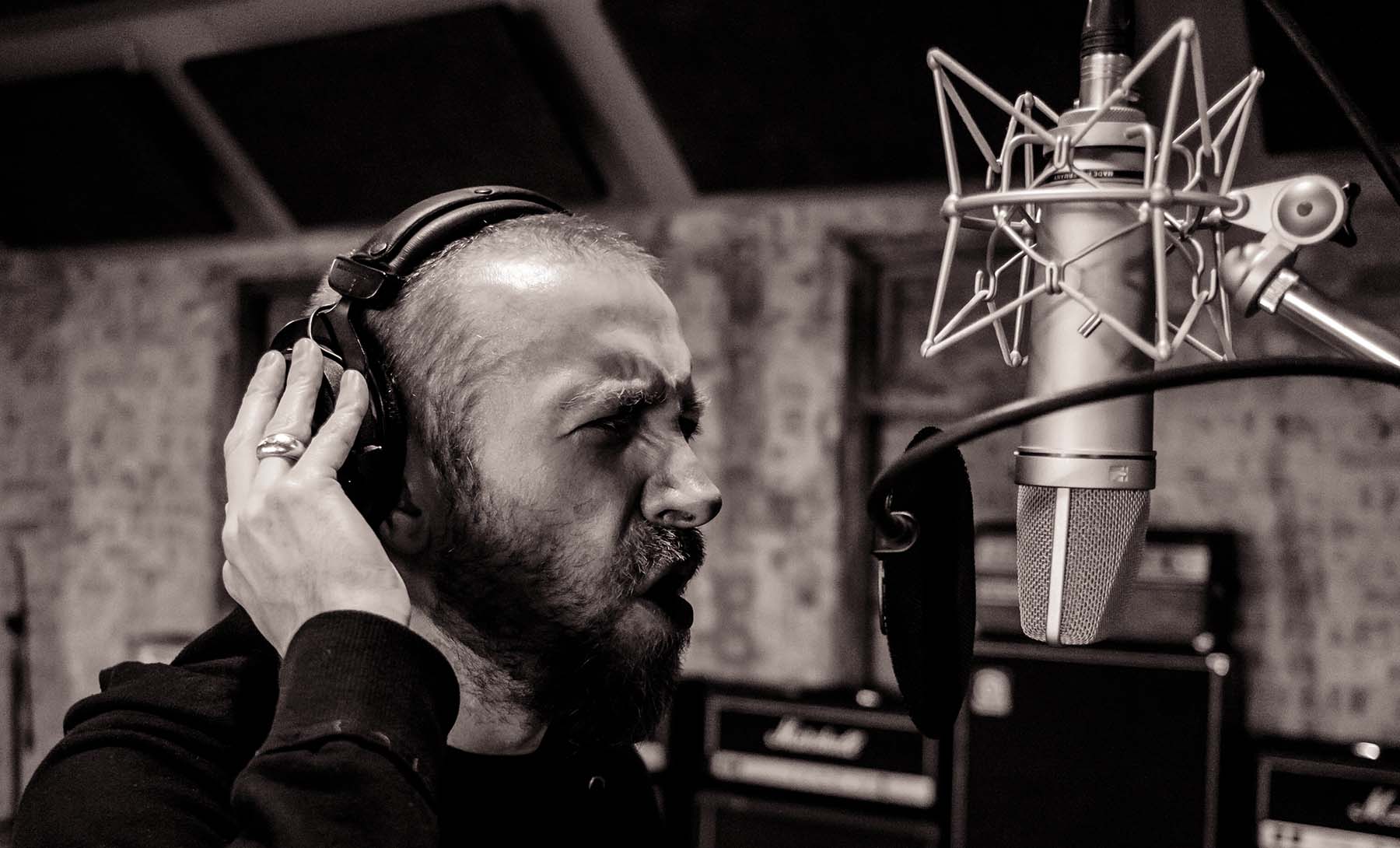
- Paradise Lost launch lyric video for The Longest Winter
- The 10 essential doom metal albums
- Metal Hammer's 50 best albums of 2017 so far
- Read Classic Rock, Metal Hammer & Prog for free with TeamRock+
How did the Medusa theme resonate with you personally?
Nick: “Not accepting that something’s happening to you or turning a blind eye to something, that happens all the time. I’ve seen it even with ill health. I’ve known people who have been very poorly, but they pretend it isn’t happening. My own father was incredibly ill and we didn’t know what was wrong with him, and then he died and we realised he did have cancer, but he wouldn’t let anyone tell us. That had a really negative impact on me for years, because at least we could have accepted what it was and deal with it, but we didn’t know what was wrong with him. That’s stayed with me ever since, even though it was 20 years ago now.”
It seems Paradise Lost have always expressed those fears in existential rather than directly personal terms. Do you find that approach gives you a bit more scope to play with?
Nick: “I like writing using metaphors, because you can really play with that a lot. There’s a common trait in metal bands that they will write very directly so there’s no ambiguity, like a song about the Titanic sinking. I like being able to look at things from different angles and playing with the words more. I’ve always liked to read lyrics that aren’t that obvious and a bit more thought-provoking.
“But you only need some small event to trigger a lyric. You don’t need some vast concept. I tend to write down words I want to use, and I get my word tree out down the line. When I get in a room and hear the music, it gets me in a zone, and then I’ll put it all together.”
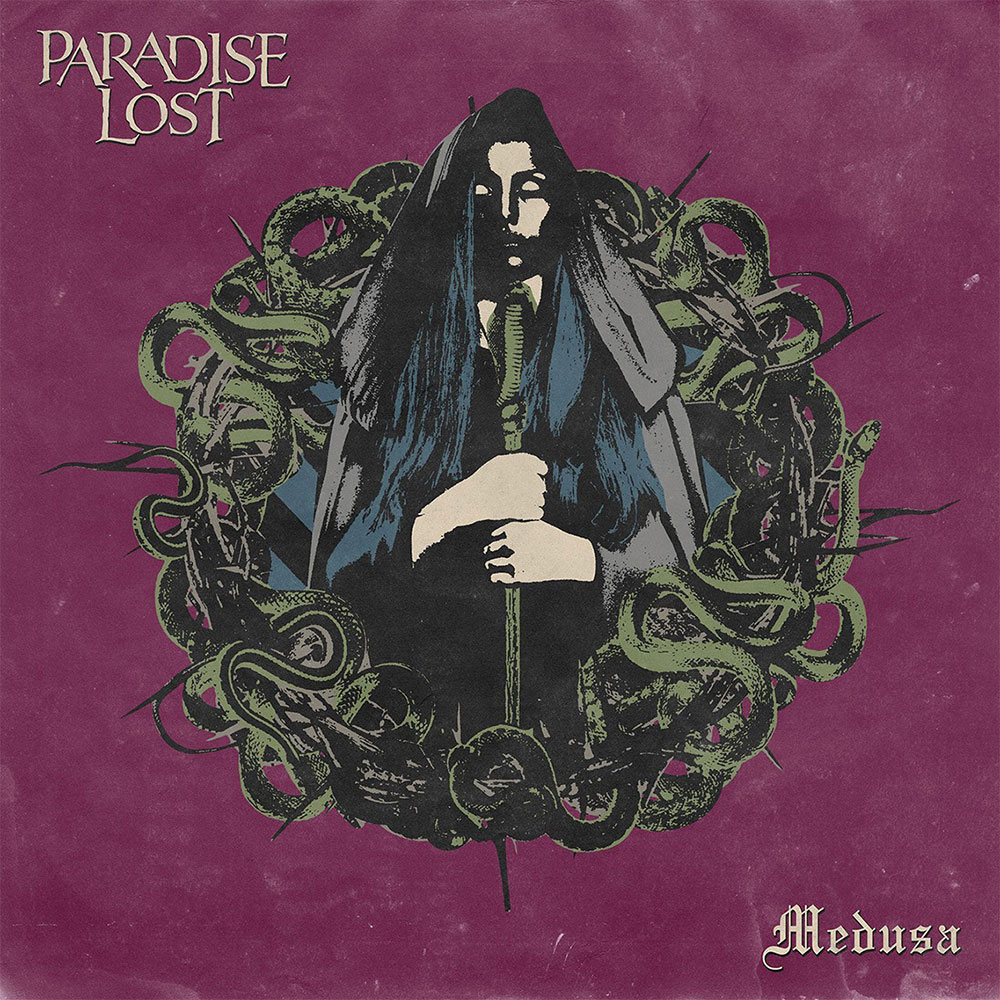
The cover for Medusa has such a strong, singular image. Did you think a lot about how it was going to be represented?
Nick: “We thought incredibly hard about it, but the thoughts were hard to put into an email. There’s only one image you’re going to have in your head, so I said, ‘Can we have a Medusa, but not one with snakes on her head?’. I wanted to think about that nihilist point of view, where you’re not accepting something that’s going to happen. But you’re going to get so many different interpretations of what that’s going to to be, and you’ve got to be a bit more specific down the line, so let’s have something that’s a bit iconic. So that’s what we’ve got. It’s a very ‘70s kind of cover. I always remember Born Again by Black Sabbath. When I first saw it I hated it but I really grew to like it. We haven’t really done that before either, and I like the fact that all our covers are quite different. It’s such a subjective thing and it’s hard for us to agree on the artwork, but you grow into things sometimes. For a long time I never liked the artwork for Icon, but you just associate it with the music and it all makes sense.”
Medusa is out September 1 via Nuclear Blast. Pre-order now from Amazon UK or Amazon US.
